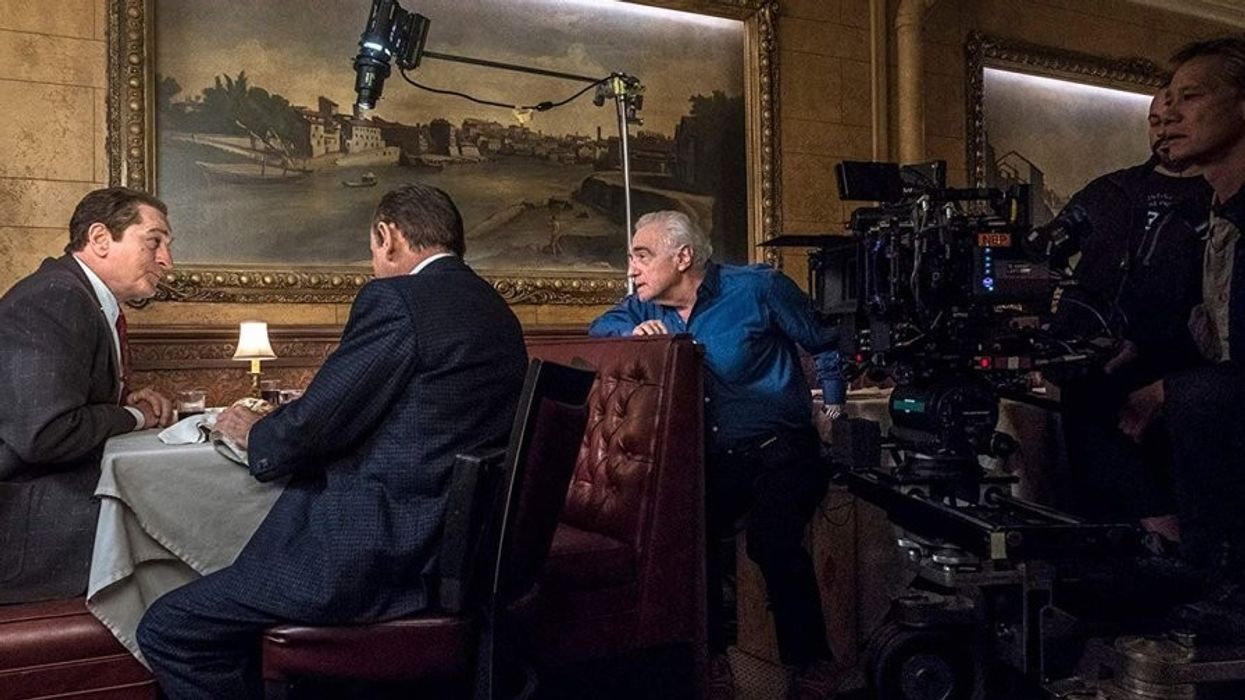3 Themes You Can Always Find in Martin Scorsese's Films
Martin Scorsese's storied career has tackled some of the biggest questions humans can answer.

When Martin Scorsese talks, we listen. The director, known for fearlessly speaking his mind, has been asking some tough questions throughout his career. Scorsese movies often follow similar themes, tackling what he's personally coming to grips with as he moves through life.
Violence.
Religion.
Money.
Power.
History.
Culture.
These are just words, but in Scorsese films, they're deep emotional beats. He helps sculpt and craft stories that matter to us as a community. Check out this video from Cinema Beyond Entertainment detailing the themes within Scorsese's films.
Martin Scorsese Speaks Candidly About Faith, Doubt, and Humanity
As Martin Scorsese has said, "As I've gotten older, I've had more of a tendency to look for people who live by kindness, tolerance, compassion, a gentler way of looking at things."
But that's not where Scorsese's journey began.
Early on in his career, his movies were about the people he grew up seeing...gangsters.
From Mean Streets to Taxi Driver, Scorsese was pulling out how violence and anger pushed people.
There were also questions of sex and morality.
I've written before that the "God" in Taxi Driver was an Old Testament God, seeking vengeance and punishing the wicked.

But as Scorsese got older, he came face to face with the mortality in his movies. See, as some works tossed people aside, when it came time for movies like Raging Bull, he was worried about how the people who survived were remembered.
No one was more concerned with legacy than Henry Hill in Goodfellas...until maybe Frank Sheeran in The Irishman, a man, close to death, looking back at all the bodies he left behind and wondering if absolution exists for him.
But how we are remembered doesn't matter because we're dead.
Unless the afterlife comes into play.

Silence was Martin Scorsese's bucket list movie, one he wanted to make his entire career. But it arguably could not have happened without The Last Temptation of Christ. He often found himself asking what life meant.
And we all know there is no easy answer there.
He was also confronting his own failings as a man.
Scorsese has been quoted as saying, "More personal films, you could make them, but your budgets would be cut down."
When you watch a Scorsese movie, you can feel pieces of him on the screen. From the young kid who wanted to be a parish priest to the guy on coke in the 1970s, recovering in the hospital and looking for meaning.
To the joyful grandfather who owes his life to the love of cinema and the desire to create.

The exciting thing is that we don't know exactly where Scorsese is going.
We've seen him speak candidly, but he has a few more movies in him. It will be interesting to see where Scorsese's career takes him. If you have predictions, let us know in the comments.
I can't wait to be in comfy theater chairs again seeing what else he has to say.
Up next: Learn why Scorsese Uses Red!
Filmmakers use color theory to help set the mood for their work. Lots of colors "mean" different things. You can buy into this stuff or not, but there's no denying that color sets a certain mood and tone. Some filmmakers go back to the same colors to evoke similar emotions.
So why does Scorsese use red?
Source: Cinema Beyond Entertainment













